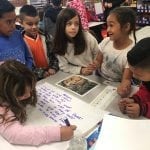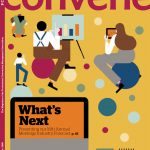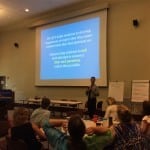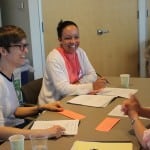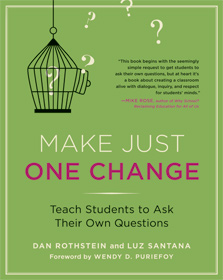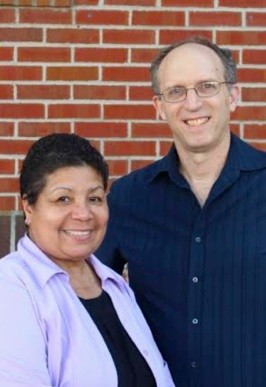A Shift That Just Makes Sense When students ask their own questions, it sparks curiosity, independence, and self-confidence, cultivating students’ ownership over their own learning. This is a shift that just makes sense. So how does an instructional coach, like myself, create this shift and promote curious conversations in the classroom? At our school, asking […]
Create a Question Formulation Technique Lesson Plan With This Online Tool
Use this free planning resource to get started right away or improve a lesson plan you already have by Chris Orchard Educators who are thinking about using the Question Formulation Technique, known as the QFT, often have two competing thoughts. (If you’re not familiar with the QFT, check out this brief description in ASCD’s Educational […]
Inquiring Minds: Interview on Right Question Institute’s Conferences
“We learn just as much from educators who have used this strategy as they do from us.” Right Question Institute Education Project and Research Coordinator, Andrew Minigan, discusses the active, collaborative learning that educators experience in every Question Formulation Technique Professional Development session. Read Andrew’s full interview with Convene Editor in Chief Michelle Russell.
Student Engagement as Accountability: “Our Goal is for Our Students to Own Their Learning”
by Greg Graham How can we hold our students more accountable for their learning? This is a common question heard in schools today. We have asked this question many times in our own school. Are we asking the right question? Should we focus on student accountability or provide more opportunities for students to invest in […]
Not Just Starting Point: Student Research & The QFT
by Quentin Flokstra As a high school humanities teacher in a small school, I do a lot of projects. I like to foster in my students a quest to find interesting information and to understand the world that they live in. As such, I spent a lot of time talking to our librarian about best research […]
Using the QFT in the Professional Development of Librarians
When I was a building librarian, my partner and I always wanted students to develop those metacognitive skills in developing questions as they moved through the research process. Originally, we were moving them through another inquiry process and while this worked well with some students, many students and teachers felt that this method was too […]
Reflections from RQI’s East Coast Summer Seminar
Written and Compiled by Jane Santa Cruz We had a great Boston seminar on Monday July 14th and Tuesday July 15th! Thank you to all the participants who attended Teaching Your Students to Ask Their Own Questions and contributed to rich discussions and constructive problem-solving around how to implement the Question Formulation Technique (QFT) in […]
Quotes from a Successful Healthcare Seminar
Our first healthcare seminar last week was a success! We were pleased to see an active group of 28 participants, including a mix of social workers, nurses, community health workers, healthcare profession educators, and administrators joining us from not just around Boston, but also Springfield, MA and Rhode Island. We began with an overview and […]
Teaching the QFT to Novice Teachers
As a teacher educator at Elon University, Jeff Carpenter works with students preparing to teach in seven different content areas and at multiple grade levels. The Question Formulation Technique (QFT) has been helpful in his work because it is a simple, flexible strategy that can be used at different grade levels and in any content […]
